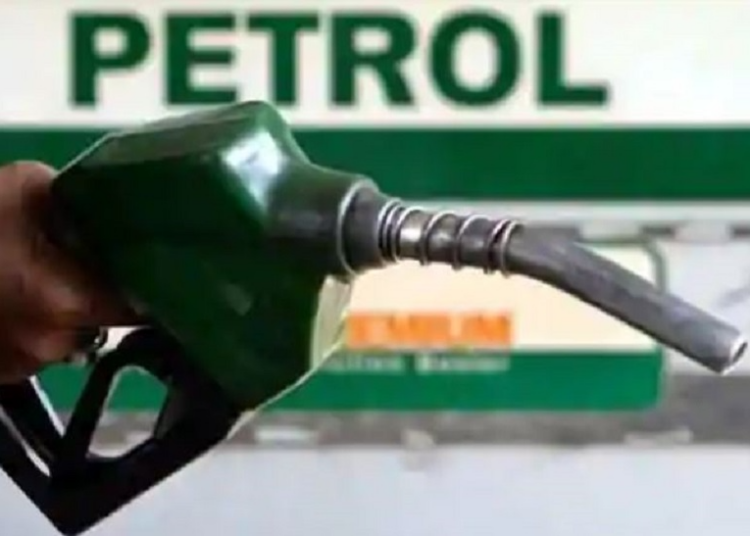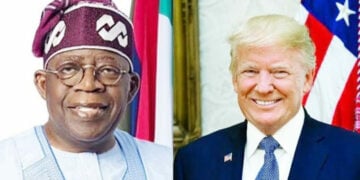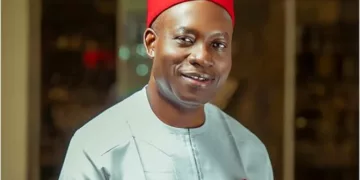The statement by President Bola Ahmed Tinubu, in his inauguration address that “fuel subsidy is gone” appears to have ended his honeymoon, even before it started.
The reactions have been immediate if varied, with the Nigerian Labour Congress (NLC) threatening to start a nationwide strike on Wednesday.
After initial long queues in many petrol stations caused by panic buying, the lines are vanishing as consumers struggle to come to terms with the adjustments that put petrol prices at between N480 and N570 per litre, a 175 percent rise from the N195 per litre in a number of cities, especially.
While most Nigerians have voiced support for the removal of subsidy, they have, however, expressed misgivings about the timing and how the announcement was made.
The main grievance, which the unions have also ventilated, is that there should have been wider consultation and better preparation to manage the fallouts of the removal, especially on the vast majority of the urban poor and vulnerable populations outside the cities. We understand these sentiments, especially in light of the severe impact of the announcement on already high inflationary pressure.
The bitter truth, however, is that the country is technically broke; it can no longer afford petrol subsidy, which rose from about N257 billion in 2006 to N4.4trillion as of last year.
As of May 29, when Tinubu announced that “subsidy is gone,” the Petroleum Industry Act (PIA) had technically ended subsidy 15 months earlier, yet the government of President Muhammadu Buhari wangled N3.36trillion into the 2022 budget to extend subsidy shelf life to June 2023.
This newspaper reported on January 26 last year, that Buhari’s decision to suspend the implementation of the PIA by 18 months, particularly his refusal to stop petrol subsidy by completely deregulating the downstream sector, would hand his successor a poisoned chalice.
President Tinubu’s decision to end subsidy, as he said he would before the election, is the right one. We believe he has done the right thing.
We recall that during the campaign also, the leading presidential candidates, former Vice President Atiku Abubakar of the Peoples Democratic Party (PDP) and Mr. Peter Obi of the Labour Party (LP), said they would also end fuel subsidy if they became president. The latter, Mr. Obi, frequently referred to it as an “organised crime” in his interviews.
We share this view. The subsidy bazaar which involved only five companies including NNPC in 2006 has exploded to cover 140 companies as of 2011 a number of them making questionable claims and leaving a scandalous hole of $6.8billion in three years, according to a Reuters report. Some officials implicated in a public enquiry on the scandal are still being prosecuted and we can’t wait to see the end of it soon enough.
We can’t continue that way. According to independent financial watchdogs, if the subsidy were to continue for the rest of 2023, it would cost N6.72trillion, over one-third of the 2023 budget. For a country already owing what its grandchildren would have to repay to continue to borrow to pay debts and subsidise petrol as Buhari has been particularly guilty of doing these last years is unfortunate.
Apart from Nigeria’s administrative capital, Abuja, the commercial capital, Lagos, and few other cities where customers bought PMS at the regulated price of N195, Nigerians in other parts of the country have been buying petrol at significantly higher prices – between N285 and N400 per litre.
This newspaper feels the hardship Nigerians are going through especially with skyrocketing food and transportation costs, and the misery of small businesses that provide their own power from small generators.
We understand the frustration of Nigerians who have been victims of the scandalous irresponsibility and reckless misuse of public resources by some public officers and politicians over the years. We feel the pain of Nigerians, especially those in rural communities and the urban poor, who must sometimes wonder if it means anything at all to be a Nigerian.
How does petrol subsidy benefit the poor, if according to PricewaterhouseCoopers (PwC), the poorest 40 percent of Nigerians consume only 3 percent of subsidised petrol? We believe that the only way to make a difference to their lives is for the government to begin to do things differently, and quickly. This would inevitably involve painful decisions.
According to a recent report by PwC, the benefits of subsidy removal range from reduced government borrowing to increased investments in critical sectors, and from reduced incentive to smuggling to a stronger naira and better investments in the downstream. Since 2016 when the subsidy on diesel and kerosene was removed, for example, supply has been relatively steady and prices moderated.
Also, for supply to improve, NNPCL, which has itself been a part of the problem for many decades cannot continue to monopolise importation and also be a retailer in the same market. The current high arbitrage between the official and black-market exchange rates has to be tackled speedily, too.
Relief expected from the coming on stream of the Dangote Refinery would only be marginal, mainly from savings in cost of haulage, insurance and handling charges. Only full and transparent implementation of the PIA would restore confidence, create new investments and provide relative price stability in the industry. And that can start now.
Still on the supply side, the president has to decide what to do with the country’s four state-owned refineries which have consumed over $25 billion in the past two and a half decades for nothing. Yet, a report by BusinessDay on September 14, 2021 said these same refineries employed 1,586 new staff members that year whose salaries and wages will cost N69 billion!
The government could also revisit the National Gas Expansion Programme (NGEP) started by the previous government which sought to help Nigerians convert from petrol-driven vehicles to compressed natural gas, which is cheaper, cleaner and more efficient.
That could take the pressure off PMS. In fact, when the NNPC launched the programme in 2020, the corporation said it would deliver one million CNG-powered by the end of 2021. The programme appears to have gone comatose after the initial fanfare of its inauguration, into which the Central Bank of Nigeria even threw in N250 billion.
There is also a need to immediately prioritise intervention in sectors like public transportation, agriculture and small and medium enterprises (SMEs), which are often mostly impacted.
In the area of public transportation, for example, the government could adopt an evidence-based approach to provide special vouchers for the owners of the estimated seven million vehicles and eight million registered motorcycles in the country.
It would be wrong to ignore groups that feel genuinely alienated. There is the need for the immediate deployment of soft power to give comfort and restore hope, without expecting a general consensus on these difficult decisions in the short term. A government that campaigned on hope cannot let despair fester.
Consumers must also create new ways of doing things and find opportunities in this adversity. If COVID-19 taught the world anything, it is the ability to survive, innovate and get things done without hopping around and being on the road.
Finally, we are pleased that the president has given a hint that public sector wages, salaries and conditions of service would be reviewed. To make it meaningful, both the federal and state governments must quickly look at the structure of ministries, parastatals and departments in their domains and clear the deadwood.
Anything short of that would be pouring petrol into the fire of spiraling inflation.





